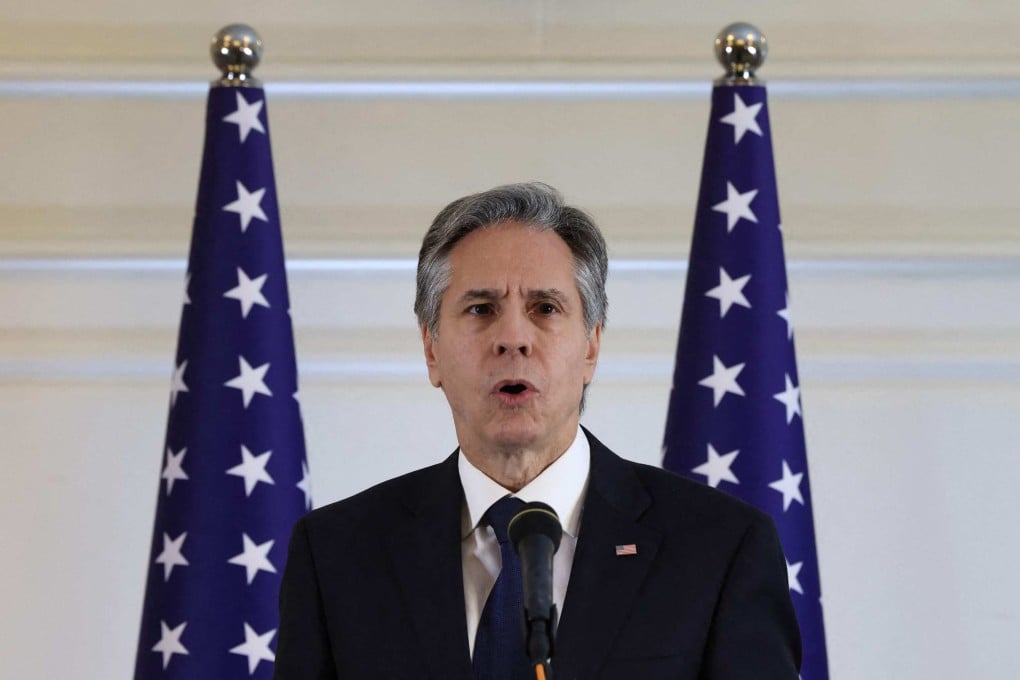Advertisement
US squeezes China on tech and trade ahead of Blinken trip, but talks won’t ease tensions: analysts
- Washington targets Beijing with counterfeiting accusations and threats to most favoured nation status in lead-up to secretary of state’s visit
- US ‘desperately’ suppresses China while also demanding cooperation, leaving little room for resolution, international affairs expert says
Reading Time:3 minutes
Why you can trust SCMP
99+

The United States has ramped up pressure on China in trade, technology and defence ahead of US Secretary of State Antony Blinken’s trip this weekend, and Washington’s strategy to contain Beijing is unlikely to change after the talks, according to analysts.
Blinken’s visit to China will be the first by a US secretary of state in five years. As the highly anticipated trip approaches, tensions between the world’s two biggest economies show few signs of easing.
On Tuesday, the US released its annual “notorious markets” list identifying major Chinese e-commerce platforms accused of failing to crack down on the trade of counterfeit goods.
Advertisement
The list included units owned by Alibaba Group, which owns the South China Morning Post, and Tencent.
And earlier this week, US and Indian officials held a dialogue on the US-India Initiative on Critical and Emerging Technologies, which aims to deepen defence and tech cooperation between the two countries.
Advertisement
Advertisement
Select Voice
Choose your listening speed
Get through articles 2x faster
1.25x
250 WPM
Slow
Average
Fast
1.25x
